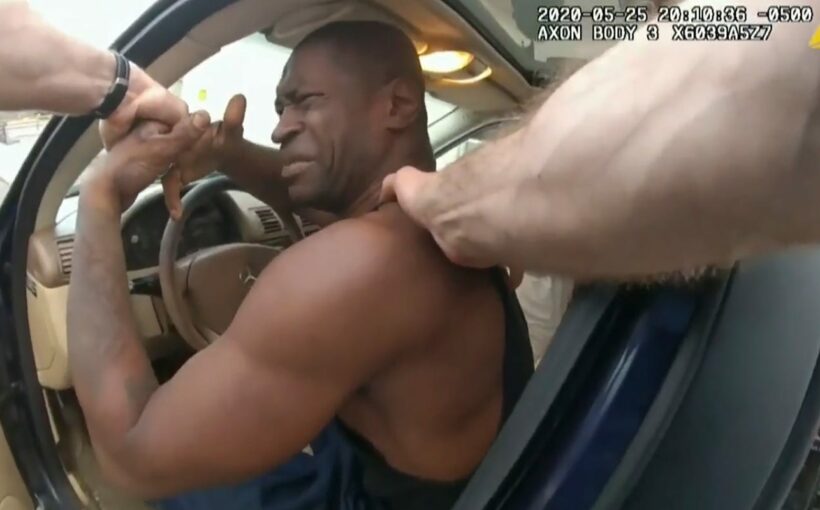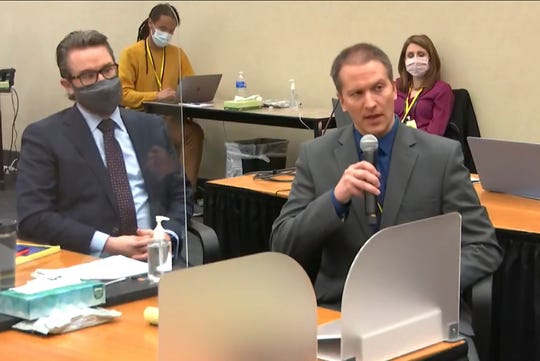Derek Chauvin has been found guilty on all counts in the murder of George Floyd, yet calls to “abolish the police” will undoubtedly continue to grow louder. The recent fatal shootings of Daunte Wright — during a routine traffic stop — and 13-year-old Adam Toledo only further highlight the urgent need for change. But as a social psychologist, I’m hoping these tragic deaths can instead prompt a new rallying cry: We need to shift the norms of the police, not abolish or defund it.
In many police departments, officers prioritize loyalty to their fellow officers — even when it means ignoring or covering up bad behavior — over just about all else. In a survey of over 3,700 police officers across the country between February 1999 and June 2000, 79% of respondents said that a code of silence exists within police culture. A full 46% said they had personally seen misconduct by another officer “but concealed what they knew”
While this type of loyalty to members of the in-group is not unique to law enforcement officers (doctors, politicians, and clergy members often adopt a similar approach), the consequences of such a culture within the police profession are particularly pernicious due to the number of interactions between police officers and community members on any given day.
Cracking the code of silence
What leads so many police officers — otherwise notably courageous people — to fail to prevent behavior that they know to be wrong or illegal if it is committed by a fellow officer? When asked to explain their actions, officers mention several factors, including a belief that their report will be ignored, fear that they will be disciplined or fired, and pressure from other officers. But the most common reason cited by far to justify their silence is fear of being ostracized.
USA TODAY’s Suzette Hackney: 44 witnesses, 14 days of testimony in Chauvin trial and now America waits for a verdict — with so much at stake
As Lorenzo Davis, a former Chicago police officer put it, “The code of silence works a lot like a family situation. You cannot tell on your family members. You just know that. No one has to tell you that. If you have a partner, you’re going to back up your partner.”
In this image from police body cam video, Minneapolis police officers attempt to remove George Floyd from a vehicle, on May 25, 2020, outside Cup Foods in Minneapolis, as it is shown Wednesday, March 31, 2021, during the trial of former Minneapolis police Officer Derek Chauvin in the case of Floyd's death, at the Hennepin County Courthouse in Minneapolis. (Photo: Court TV via AP)
Changing workplace culture — whether a police unit, business, or school — is never easy. There’s usually pushback, at least from some. And it takes more than just identifying — and firing — a few bad actors. It usually takes inspired leadership and a substantial overhaul to change ethical behavior and convince people not to protect the bad behavior of their friends or coworkers.
Is such a shift possible? In a word, yes.
Several airplane crashes in the 1970s were attributed to crewmembers’ failure to challenge bad decision-making by the pilot. Researchers probed the psychological factors that prompted the crew to defer to the pilot and recommended some fundamental changes in training procedures within the aviation industry. Airlines began using a NASA-developed program known as Cockpit Resource Management, which is widely credited with making flying substantially safer.
So what would a similar overhaul look like for the police?
We can teach good policing
One of the best examples of how police department culture can change — not overnight, but over time — can be found in the New Orleans Police Department. This department was the target of a number of lawsuits over the years, stemming from incidents in which officers were accused of planting evidence, shooting unarmed people, and covering up their own criminal actions. Public trust in the police force was abysmal.
USA TODAY’s Eileen Rivers: Is Chauvin guilty verdict a guarantee? It should be, but Black America knows why it’s not
In 2014 a new police superintendent, Michael S. Harrison, was brought in to change the culture of the department. He started by introducing a new training program, developed by police officers with the support of Ervin Staub, a legendary social psychologist whose career has focused on the factors that help overcome bystander inaction.
The program, known as Ethical Policing is Courageous (EPIC), focuses on changing the norms that undergirded the culture of loyalty and silence — ignoring bad behavior by fellow officers — to one of protecting them by preventing unethical behavior from occurring. EPIC teaches officers how to become active bystanders who intervene if they see fellow officers engaging in bad behavior, whether it’s lying on a report, planting evidence, or kneeling on someone’s neck. “If you can teach someone to put on a bulletproof vest and you can teach them how to round a corner, you can teach someone to more effectively intervene,” says Jonathan Aronie, a lawyer who helped developed the EPIC program in New Orleans.
Former Minneapolis police Officer Derek Chauvin addresses the judge on April 15, 2021. (Photo: Court TV via AP)
Most importantly, the EPIC program teaches officers that loyalty does not mean joining in on — or ignoring — bad behavior. It means trying to prevent it. “Active bystandership is contagious,” says New Orleans Deputy Superintendent Paul Noel. “It’s hard to resist an outspoken co-worker who is intent on doing the right thing.”
Reform, don’t abolish police
Police departments across the country are facing a fundamental choice: maintain an institutional culture that enables bad behavior or shift department norms. And the good news — for police departments that want to make such change — is that help is available.
The Active Bystandership in Law Enforcement (ABLE) Project at Georgetown University builds on EPIC and years of academic research to deliver practical training for police departments interested in creating a law enforcement culture that encourages active intervention over silence and inaction.
Communities desperate to prevent future tragedies have an option. Instead of abolishing the police, they can demand meaningful reform. As Christy Lopez, who led the U.S. Department of Justice Civil Rights Division’s negotiations with the Ferguson Police Department after the shooting of Michael Brown and now co-leads Georgetown Law’s Innovative Policing Program, puts it, the choice is really “a no-brainer.”
As we take in Tuesday’s verdict, it is worth remembering that Derek Chauvin had 17 complaints filed against him during his 19 years with the Minneapolis Police Department. He served as the field training officer to two of the other officers present at the time of Floyd’s arrest — and death. It’s time we picked new and better trainers, who can lead the way in developing and modeling a new set of norms, and educate and empower all officers to become “active bystanders,” even when that requires intervening in actions committed by a senior officer.
Our police officers — and our communities — deserve nothing less.
Catherine A. Sanderson, the Poler Family Professor and Chair of Psychology at Amherst College, is the author of “Why We Act: Turning Bystanders into Moral Rebels” and serves on the ABLE board of advisers. Follow her on Twitter: @SandersonSpeaks
You can read diverse opinions from our Board of Contributors and other writers on the Opinion front page, on Twitter @usatodayopinion and in our daily Opinion newsletter. To respond to a column, submit a comment to [email protected].
Source: Read Full Article


